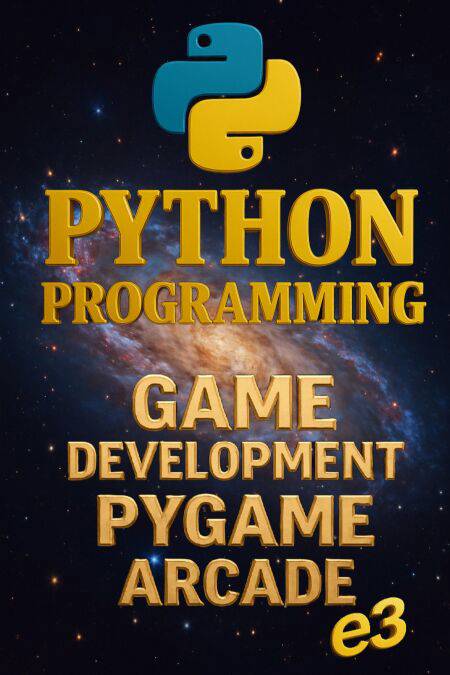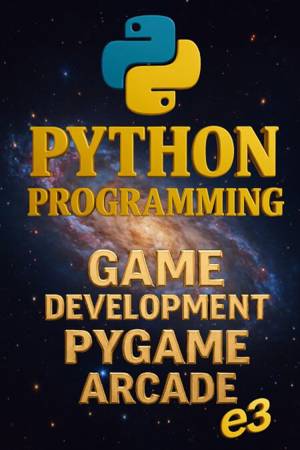
- Retrait gratuit dans votre magasin Club
- 7.000.000 titres dans notre catalogue
- Payer en toute sécurité
- Toujours un magasin près de chez vous
- Retrait gratuit dans votre magasin Club
- 7.000.0000 titres dans notre catalogue
- Payer en toute sécurité
- Toujours un magasin près de chez vous
Description
Preface The world of computer programming has always been a fertile ground for creativity, problem-solving, and innovation. Among its many fascinating domains, game development stands out as one of the most engaging and rewarding paths for learners and professionals alike. Games combine artistry with technical mastery, weaving together graphics, logic, sound, and interactivity into experiences that capture imagination and challenge the mind. This book, Python Programming: Game Development, Pygame – Game Development Framework, Arcade – 2D Game Development, is designed to guide readers through the exciting journey of creating games with Python. Python, known for its simplicity and readability, has become an ideal language for both beginners and experienced programmers who wish to venture into game design. With its supportive ecosystem of libraries and frameworks, Python offers a unique balance of accessibility and power that enables developers to quickly bring their ideas to life. The book focuses on two prominent frameworks in Python's game development landscape: Pygame and Arcade. Pygame, a well-established and widely used library, has introduced countless learners to the fundamentals of 2D game design. Its straightforward structure makes it an excellent foundation for understanding how games work under the hood—covering essential concepts such as event handling, sprite movement, and collision detection. On the other hand, Arcade represents a more modern, Pythonic approach to 2D game development. Built with clarity, efficiency, and ease of learning in mind, Arcade leverages Python 3 features and provides tools that streamline the process of crafting visually appealing and interactive games. By combining both frameworks, this book offers a balanced perspective. Readers will learn the traditional yet powerful methods of Pygame while also exploring the clean, object-oriented design principles of Arcade. Together, they provide a comprehensive toolkit for building everything from simple arcade-style projects to more complex and dynamic game applications. The structure of the book is crafted with progression in mind. Starting from the very basics of Python programming, readers are gradually introduced to the mechanics of game loops, graphics rendering, user input, and sound integration. As the chapters advance, more sophisticated techniques are introduced, including sprite management, physics simulation, and performance optimization. Each section is reinforced with practical examples, detailed explanations, and projects that encourage experimentation and creativity. The ultimate goal of this book is not only to teach the syntax and mechanics of game development in Python but also to inspire readers to think like game designers and problem solvers. Whether you are a beginner eager to create your first playable project, an educator seeking a resource to introduce programming through interactive learning, or a hobbyist interested in sharpening your coding skills through creative outlets, this book is crafted to serve as a guide and a companion on your journey. Game development is more than writing code—it is about bringing imagination to life. As you progress through the chapters, may you discover the joy of creating, experimenting, and sharing your own interactive worlds. Author
Les avis
Nous publions uniquement les avis qui respectent les conditions requises. Consultez nos conditions pour les avis.







